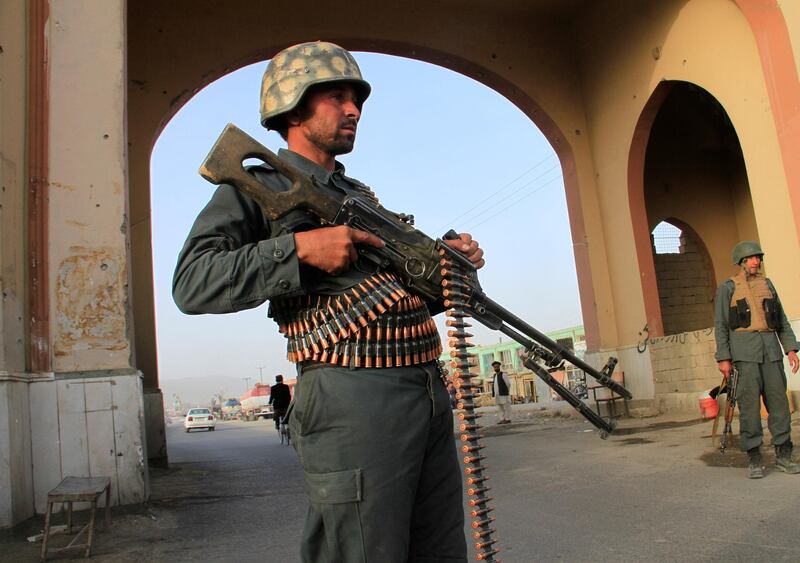As Afghans prepare for the much-delayed parliamentary elections, one province in Afghanistan will not be going to polls. The southern province of Ghazni, the provincial capital of which briefly fell to the Taliban in August this year, will not be polled on October 20.
“The elections won’t happen in Ghazni this week due to various complications,” said Mirza Mohammad Haqparast, the Deputy Spokesperson of the Independent Election Commission (IEC). "There were issues with security as well as voter registrations in many parts of the province.”
Ghazni has had a difficult year with a five-day long siege by the Taliban that resulted in many casualties, and collapse of a functioning government. In August residents of Ghazni found themselves cut off from the rest of the country as Afghan forces battled several hundred Taliban fighters to retake the provincial centre.
“We made a proposal to the national security office to look over the matter and took the decision to postpone the elections temporarily,” Mr Haqparast explained.
Despite the government regaining control of the province, the security situation in Ghazni remains volatile. "Just last week I was in Ghazni city, one kilometre from the governor's office, but the whole night we were up because of constant fighting and bombing," a local resident, who did not wish to be identified owing to the sensitive situation, told The National.
Security matters aside, Ghazni already faced an ongoing dispute over the elections earlier this year. Residents from various ethnic backgrounds raised concerns over equal representation, and demanded that the constituencies be divided to ensure a balanced electorate. Eventually the IEC did split the province in three separate constituencies, however counter protests continued, a result of which IEC offices remain closed.
The vote would be delayed, rather than cancelled, Mr Haqparast said. “Ideally the election should happen in four months, as per the law.”
_______________
Read more:
Afghan elections 2018: what you need to know
[ Youth wave challenges Afghan elections ]
Powerful Afghan police commander killed in Kandahar insider attack
_______________
However, owing to the complex situation, IEC officials plan to hold the parliamentary vote alongside presidential elections scheduled for April 2019. Meanwhile, the current members of parliament for Ghanzi will continue to represent the province until new ones are elected.
The postponement has not been welcomed. Ali Yawar Adili, a researcher with the Afghanistan Analysts Network, claimed that legal procedures were not followed in postponing the elections. During his investigation, Mr Adili found that the request for delay was still pending a final decision by the committee authorised by electoral law. “A special committee of senior government officials had been tasked in early August to rule on an IEC proposal to delay both elections. It has not done so,” he wrote. “This failure to observe the legal procedures… undermines the credibility of the election management bodies and the electoral process [and] undermines the principle that countrywide elections should be held on one day.”
He also pointed out that the IEC plan to hold multiple elections in Ghazni alongside countrywide elections at the same time could further complicate preparations and procedures. “International donors, in particular, have repeatedly argued that Afghan voters, many of them illiterate, are likely be overburdened by multiple ballot papers,” he added.





